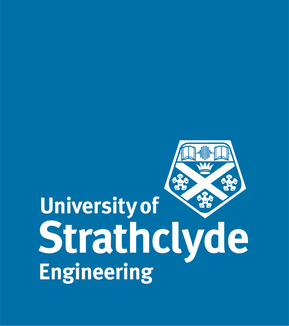

The Project
The GLOW project is funded by the Engineering and Physical Sciences Research Council (EPSRC) and will create a new socially smart computational system to equitably and dynamically communicate household energy demand at a neighbourhood scale. Drawing on new insights from Glasgow and Bristol residents’ approaches to managing energy in their homes as well as their perceptions of what this means in their neighbourhoods, a new multidimensional evidence based on the social and spatial characteristics of energy demand behaviour will be developed. The computational system will be shaped by this first-of-a-kind evidence base as well as theoretical insights from Social Practice and Social Identity Theory to biomimetic approaches in the study of other species’ communication mechanisms such as bees that have evolved an efficient way to communicate collective resource needs.
The project is led by Prof. Sonja Oliveira, Department of Architecture, University of Strathclyde, Glasgow in collaboration with academic partners, the University of Bath (Dr. Chatzimichali) the University of the West of England (UWE), Bristol (Dr. Barakat, Dr. Badarnah, Dr. Perez Hernandez), the University of Bristol, Bristol (Dr. Atkins) and non-academic partners. The project team will be working closely with Steering Group partners, including Energy Systems Catapult, Energy Super Hub Oxford, Kenza Engineering, Community Infrastructure Group, SNUG, Bristol Housing Festival, Stride Treglown as well as Stellenbosch Institute for Advanced Study, Purpose and Desire, Oxford Brookes University, Utah State University / Centre for Atmospheric and Space Sciences CASS and The University of Texas at Arlington.
Benefiting residents and communities toward net-zero carbon futures
Findings will benefit residents by enabling a user-oriented and evidence-based approach to managing home energy. Housing developers and construction professionals will better understand how energy is used in homes and what socio-spatial configurations support targeted net-zero design and development. Energy policymakers will benefit from gaining novel insights and a rich evidence base that offers social and spatial knowledge, household behavioural patterns, and social responses to better inform a sustainable future regarding energy demand management.
Pushing boundaries for ethical, sustainable home energy behaviour change
We seek to push the boundaries of interrelated fields of practice and research, providing new pathways, resources and intelligence that will have a legacy in supporting meaningful and ethical, sustainable home energy behaviour change.
Sonja Dragojlovic-Oliveira
RESEARCH TEAM


Professor Sonja Oliveira - Principal investigator (PI)
(University of Strathclyde)
Sonja is a Professor in Architecture and Sustainability Design Innovation with over 20 years of innovation and research experience in the sustainability and design sector. She has worked as an associate architect, senior manager, and principal investigator in the delivery of complex multidisciplinary research, innovation, and design projects ranging in value from £200k-£29mil in the UK and internationally. She founded the Radical Architecture Practice for Sustainability network (http://www.rapsresearch.com) in partnership with leading design practitioners and researchers in Sweden, the Netherlands, Portugal, Austria, Serbia, and France. She has been appointed as a Thought Leadership Specialist Advisor to the Design Council and is a board member of the World Green Building Council (Serbia), as well as a scientific and industry advisory member of numerous scientific committees including ARENA and the New European Bauhaus Collective.

Associate Prof. Anna Chatzimichali
(University of Bath)
Anna is a Senior Lecturer in Engineering Design at the University of Bath. She lead the Embedded Intelligent Empathy feasibility study funded by Connected Everything II: Accelerating Digital Manufacturing Research Collaboration and Innovation. Together with a team of design experts, they investigate novel ways to model empathy and systematically integrate it into computational design. Their goal is to integrate empathy in the next generation of smart products to align with the emotions driving behaviors and forge powerful connections with the users.

Dr. Ed Atkins
(University of Bristol)
Ed is a Senior Lecturer at the University of Bristol. His work is focused on interdisciplinary research into energy transitions, climate change communication, and a just transition. He arrived at the School of Geographical Sciences in 2018 - the same year that he completed my PhD at the School of Sociology, Politics, and International Studies (also at Bristol).

Dr. Lidia Badarnah
(University of the West of England)
Lidia is a senior lecturer in architecture at UWE Bristol. Her work contributes to an emerging body of research that seeks to redefine environmental design in architecture through mimicking natural systems (i.e. biomimetics), changing approaches from conventional separated building systems to adaptive and integrated solutions and methods for enhanced sustainability and resilience in architecture. She received her PhD from TU-Delft and carried out her postdoctoral studies at MIT, and further developed her teaching and research at Cardiff University and AA London. She has received competitive fellowships and awards and has been invited to give talks and workshops internationally, focusing on investigating behavioural and morphological patterns in organisms for the development of adaptive solutions for buildings. Lidia's approach is systematic and multi-disciplinary to solving design problems, and tackling global societal and environmental challenges in novel ways.
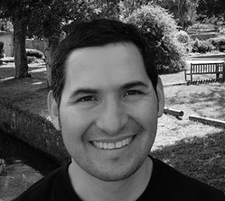
Dr. Marco Perez Hernandez
(University of the West of England)
Marco is a Lecturer in the Department of Computer Science and Creative Technologies at the University of the West of England Bristol where he researches and teaches about topics related to multi-agent systems, distributed artificial intelligence, and their applications. He is the recipient of the UWE’s Vice Chancellor Early Career Research Award 2022. Before joining UWE he was a Postdoctoral Research Associate at the Institute for Manufacturing (IfM) at the University of Cambridge, working mainly on the design of agent-based control systems. He completed his Ph.D. in Computer Science at the University of Leicester where he studied autonomy and self-adaptation in systems of smart objects and how to realise these behaviours through middleware architectures.

Dr. Faezeh Bagheri-Moghaddam
(University of Strathclyde)
Faezeh is a Postdoctoral Research Associate at the Department of Architecture, University of Strathclyde. She received her international PhD in Architectural, Civil and Urban Heritage and Refurbishment of Existing Buildings in January 2022 from the Polytechnic University of Catalunya (UPC), Barcelona, Spain. She conducted research about integrating Architecture with Technology and Biology as a way to improve building energy efficiency.
Steering Group Hub and Partners
Community Infrastructure Group (Mr. A. Templeton)
SNUG (Mr. J. Moulding)
Bristol Housing Festival (Mr. J. Sweetland)
Stride Treglown (Mr. R. Delius)
Oxford Brookes University (Professor R. Gupta)
State University of New York (Professor S. Turner)
Utah State University / Centre for Atmospheric and Space Sciences CASS (Professor A. Barakat)
The University of Texas at Arlington (Dr. C. Krejci)







CONFERENECE PAPERS AND PRESENTATIONS
Ethnographies of Urban Data and Tech by IT University of Copenhagen
Conference paper titled: Assemblages of home energy rhythms - from the individual to the collective
September 2023
CISBAT Conference - Operation, Well-being, and Circularity:
the pillars of a sustainable transition of built environments - 13 - 15 Sept 2023 at Lausanne, Switzerland
Conference paper titled: Inspiration from Animal's Collective Behavior for Home Energy Demand Management
Badarnah L., Barakat M., Oliveira S., "Inspiration from Animal's Collective Behavior for Home Energy Demand Management," in CISBAT, 2023.
September 2023
BIEE Conference -Energy matters for all: from global actors to active consumers - 20 - 21 Sept 2023 at Worcester College, Oxford, UK
Conference paper titled: Social identity and relations: implications for home energy demand and the peak load reduction in the UK
Oliveira S., Chatzimichali A., Bagheri-Moghaddam F., Atkins E., and Badarnah L., "Social identity and relations: implications for home energy demand and the peak load reduction in the UK," in Energy matters for all: from global actors to active consumers, Oxford, 2023: BIEE.
October 2023
IEEE International Conference on Communications, Control, and Computing Technologies for Smart Grids - 31st Oct to 3rd Nov 2023 at Glasgow, UK
Conference paper titled: A Socially Intelligent Approach to Consumers' Collective Capabilities in Smart Grids
Bagheri-Moghaddam F., Oliveira S., Atkins E., Chatzimichali A., "A socially intelligent approach to consumers’ collective capabilities in smart grids," in IEEE International Conference on Communications, Control, and Computing Technologies for Smart Grids, 2023: IEEE.

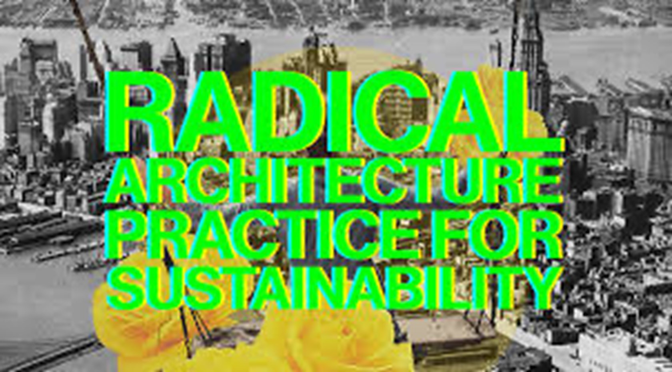
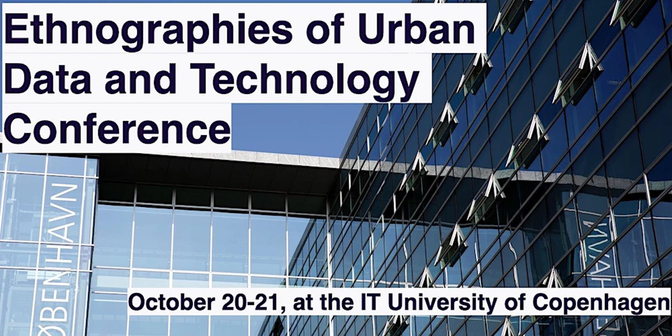
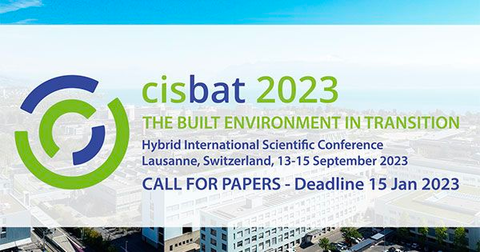


JOURNAL PAPERS

Energy Research & Social Science Journal - March 2022
Oliveira, S., Badarnah, L., Barakat, M., Chatzimichali, A., & Atkins, E. (2022). Beyond energy services: A multidimensional and cross-disciplinary agenda for home energy management research. Energy Research & Social Science, 85, 102347. https://doi.org/10.1016/j.erss.2021.102347
Abstract: Home Energy Management (HEM) has a significantly growing impact on strategic energy policy, digital equity, as well as housing development and transport issues. With the proliferation of home working, reliance on electricity for heating and cooling and the increasing need for electric charging for transportation, there is an urgent need to develop novel ways for efficient management of home energy use. Current efforts focus on HEM technologies at individual household levels, without considering the social or spatial context or their collective community-wide interrelated dependencies.
We propose a multifaceted agenda at the intersection of disciplinary domains to tackle this problem by using a multidimensional lens that draws on energy behaviour, architectural research, biomimetics, and computational design, simultaneously. Optimal and effective behavioural patterns can be extracted and abstracted from nature, informing a more collective and interrelated behavioural dependencies approach that considers the complex multidimensional energy use patterns of different housing typologies. This paper discusses the analytical benefits of this new research approach through a study of home energy management behaviour. The approach though could be expanded to consider other similar empirical contexts whereby sustainable multidimensional resource management is sought such as water use, food distribution as well as transport and mobility.
Energy Research & Social Science Journal - September 2023
Oliveira S., Chatzimichali A., Atkins E., Badarnah L., Bagheri-Moghaddam F., "From individuals to collectives in energy systems: a social practice, identity and rhythm inspired lens," ERSS, 2023.
Abstract: The need for socially smart energy systems that incorporate both individual and collective social, spatial, and technical dimensions is increasing. However, the social, spatial and technical interplay between individual and collective scales has been poorly studied and lacks a conceptual basis. Most research to date has focused on social, technical, socio-technical, or spatial approaches at the individual level, or at the collective level independently of the individual. Therefore, overlooking the complex underlying dynamics between the individual and the collective and ignoring the multidimensional and multimodal nature of energy use and demand across scales. In response, we propose a novel integration of social practice, social identity theory, and rhythm analysis, with a focus on the collective capabilities of energy users observable across neighbourhood social contexts and spatial scales. . Our conceptual framework offers analytical benefits to energy research and policy by viewing energy users within their individual and collective socio-technical contexts across rhythms of everyday routines. This approach can inform future research in energy systems, as well as policy and practice in the design of new governance mechanisms and engineering requirements for socially smart grids, devices, and collective energy systems.
INDUSTRY AND POLICY REPORTS

Delivering a smart and secure electricity system - Consultation on interoperability and cyber security of energy smart appliances and remote load control
September 2022
The consultation and supporting analytical annex are available at:
https://www.gov.scot/publications/draft-energy-strategy-transition-plan/
Submission to Draft Energy Strategy and Just Transition Plan consultation, Scottish Government
March 2023
Draft Energy Strategy and Just Transition Plan Consultation, Scottish Government
The consultation and supporting analytical annex are available at:
https://www.gov.scot/publications/draft-energy-strategy-transition-plan/
Call for Input - the Future of Distributed Flexibility (Ofgem)
May 2023
Unlocking the Potential of Distributed Flexibility for a Sustainable Energy Future
The consultation and supporting analytical annex are available at:
https://www.gov.scot/publications/draft-energy-strategy-transition-plan/
Project Updates & News

2022
2023
2024

Project Updates & News
March 2022
Project Launched Workshop
The GLOW Team launched the project in a dynamic Hive-based workshop on 22nd March 2022. Experts from the housing, energy, infrastructure, and digital futures as well as architecture and design explored the challenges and opportunities in household energy management (HEM) technologies’ interconnectedness with community energy demand [spatially, digitally, and socially].
The aim of this launch workshop was to provide an innovative dynamic approach to engaging stakeholders with how people manage energy in homes and what could be learned from bees’ social organization and communication. Building on a growing interest in sustainable energy transitions and energy democracy, this project workshop launch offered an accelerated approach for both communities and individuals to forge a new relationship with energy. Though the focus is on the energy sector and housing, findings from this project have wider implications and potential benefits in the food supply chain for instance, where collective needs necessitate an optimized individual response.

Project Updates & News
August 2022
Prof. Sonja Oliveira has been invited to speak at the Ethnographies of Urban Data and Technology Conference
The abstract for "Assemblages of Home Energy Rhythms: From the Individual to the Collective" has been accepted for presentation as a speaker at the Ethnographies of Urban Data and Technology Conference in Copenhagen, Denmark.
Date and time:
Thu, 20 Oct 2022, 09.00 - Fri, 21 Oct 2022, 17.00 CEST
Location:
IT University of Copenhagen
7 Rued Langgaards Vej
2300 Kobenhavn
Denmark
September 2022
The consultation and supporting analytical annex are available at:

Project Updates & News
October 2022
A call to participate in the survey was published in the Bristol 24/7 news.
SURVEY: HOW DO BRISTOLIANS USE ELECTRICITY?
Available: https://www.bristol247.com/news-and-features/features/survey-how-do-bristolians-use-electricity/
A call to participate in the survey was published in the Bristol Green Capital.
Exploring collective energy needs
Available: https://bristolgreencapital.org/exploring-collective-energy-needs/

Project Updates & News
February 2023
From the home to the hub – Energy Networks in the Community
The GLOW project will host an event "From the home to the hub – Energy Networks in the Community" in the Engage with Strathclyde events programme. The aim of this event is to share knowledge on initial insights found, create pathways to impact key energy stakeholders, and gain a better understanding of how the proposed approach might be adopted by the energy sector.
Date: 4th May 2023
Time: 14:00 - 17:00
Location: TIC building

Project Updates & News
March 2023
Taking part in the “Feel The Heat: Glasgow“ workshop
The "Feel The Heat: Glasgow" event was organised and hosted by the University of Strathclyde with the objective of facilitating knowledge exchange and discussion around the ongoing developments in the Glasgow area concerning sustainable heat and power networks for local use. Dr. Bagheri Moghaddam, a research associate from the University of Strathclyde, delivered an informative presentation introducing the initial insights from the EPSRC-funded project GLOW to a diverse group of energy professionals. The attendees included representatives from various organizations, such as the Scottish Government, Scottish Water Horizons, Clyde Gateway, Star Renewable, Enervate, Vattenfall, BE-ST, and Fortum, as well as other academic institutions. The event provided an excellent opportunity for the participants to network, exchange ideas, and gain valuable insights into the latest innovations and advancements in the field of sustainable energy and heat.
Date: 28th March 2023
Time: 10:00 - 12:00
Location: Collins Building, Richmond St., Glasgow
Submission to Draft Energy Strategy and Just Transition Plan consultation, Scottish Government
The consultation and supporting analytical annex are available at:
https://www.gov.scot/publications/draft-energy-strategy-transition-plan/

Project Updates & News
May 2023
Submission to Call for Input - the Future of Distributed Flexibility (Ofgem)
Unlocking the Potential of Distributed Flexibility for a Sustainable Energy Future
The consultation and supporting analytical annex are available at:
https://www.ofgem.gov.uk/publications/call-input-future-distributed-flexibility
Taking part in the “Images of Research Exhibition“
We are thrilled to announce that our image from the GLOW project has been shortlisted for the Images of Research Exhibition, which is being held at the University of Strathclyde (displayed at the Mitchell Library as part of Engage with Strathclyde and the Glasgow Science Festival) and launched on May 2nd. This exhibition celebrates the diversity and impact of research through creative and visually striking images. Being shortlisted for this exhibition is a tremendous honour and recognises the significant contributions that our team has made in the field of technology transformation. We are excited to share our work with the wider community and showcase the creativity and innovation that drives research forward.

Project Updates & News
June 2023
The paper has been accepted to the CISBAT conference titled “Inspiration from Animal's Collective Behavior for Home Energy Demand Management”.
CISBAT Conference - Operation, Well-being, and Circularity: the pillars of a sustainable transition of built environments - 13 to 15 Sept 2023 at Lausanne, Switzerland
The abstract has been accepted to the BIEE conference titled “Social identity and relations: implications for home energy demand and the peak load reduction in the UK”.
BIEE Conference -Energy matters for all: from global actors to active consumers - 20 to 21 Sept 2023 at Worcester College, Oxford, UK
The abstract has been accepted to the IEEE conference titled “A Socially Intelligent Approach to Consumers' Collective Capabilities in Smart Grids”.
IEEE International Conference on Communications, Control, and Computing Technologies for Smart Grids - 31st Oct to 3rd Nov 2023 at Glasgow, UK

Project Updates & News
September 2023
Prof. Oliveira has been invited to present at the BIEE conference – with a talk, entitled “Social Identity and Relations: Implications for Home Energy Demand and Peak Load Reduction in the UK.”
Oliveira S., Chatzimichali A., Bagheri-Moghaddam F., Atkins E., and Badarnah L., "Social identity and relations: implications for home energy demand and the peak load reduction in the UK," in Energy matters for all: from global actors to active consumers, Oxford, 2023: BIEE.
Prof. Oliveira's recent article, entitled 'From Individuals to Collectives in Energy Systems: A Social Practice, Identity, and Rhythm-Inspired Lens,' has been accepted for publication in Energy Research & Social Science (ERSS).
Oliveira S., Chatzimichali A., Atkins E., Badarnah L., Bagheri-Moghaddam F., "From individuals to collectives in energy systems: a social practice, identity and rhythm inspired lens," ERSS, 2023.

Project Updates & News
November 2023
Dr. Faezeh Bagheri-Moghaddam presented the project paper titled “A socially intelligent approach to consumers’ collective capabilities in smart grids” at the IEEE conference, in 3th November at TIC building, University of Strathclyde.
F. Bagheri Moghaddam, S. Oliveira, E. Atkins, and A. Chatzimichali, "A socially intelligent approach to consumers’ collective capabilities in smart grids," in IEEE International Conference on Communications, Control, and Computing Technologies for Smart Grids, 2023: IEEE.

